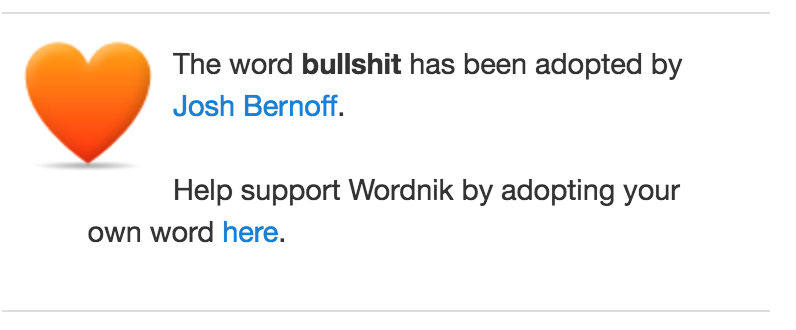How to use a thesaurus to name stuff creatively

I use an online thesaurus frequently in my work. It’s certainly not because my vocabulary is limited. It’s because it shakes loose new ideas when I’m trying to name things.
The cliche of the thesaurus user is the desperate paper-writer who doesn’t want to repeat the same word endlessly (for example, “war,”), even though they are repeating the same ideas. But repeating the same idea is boring no matter what words you use. Writing “The Vietnam War”, “the southeast Asian conflict”, “the epic tiff in Indochina” and so on just marks you as an idiot with Internet access.
Like any other tool, a thesaurus in the hands of an adept writer is helpful, while in the hands of a fool it’s dangerous. They key is to find the right word, not just another word. To do that, you need to know enough about words and connotations to spot the right word when you see it.
My most productive use of the thesaurus comes during title and subtitle sessions. You’re looking for words that evoke an idea. For example, when I helped the economist Len Burman name his blog, we knew we wanted something that reflected his point of view, which was authoritative but offbeat and independent. “Offbeat” lead to “different.” “Bizarre” was way off. “Idiosyncratic” was too personal and sounded like he would often be wrong. “Rebellious” was close, but that led us to “impertinent.”
And there we stopped, rolling the word around a bit and getting comfortable with it. And “The Impertinent Economist” was born.
An important element of these sessions is Google, which enables you to see if you’ve chosen a combination of words that somebody else already owns. “Owns” doesn’t mean they have bought it and possess it, it means they dominate the search results. That’s why my book with Ted Schadler was nearly called “Heroes” instead of “Empowered” — until we discovered it was the title of an NBC television series, so we could never dominate search results for it.
If you’re titling a book, there’s already a universal search engine for book titles: it’s called Amazon.com. Your book can have the same title as another book (there are lots of books called “Groundswell”) but not if the other book is in the same category. If there was another book on social media called “Groundswell,” we would have picked something else.
 Trademarkia will help you see if somebody has claimed a trademark on the phrase you’ve chosen. That’s only a problem if the trademark is in the same category as your concept — say, business services for a business book. That’s why trademark owners Thomson Financial Services, Thomson’s Water Seal, Thomson Holidays, and Thomson/Technicolor can coexist without conflicts — and without getting in the way of Tintin’s friends Thompson and Thomson.
Trademarkia will help you see if somebody has claimed a trademark on the phrase you’ve chosen. That’s only a problem if the trademark is in the same category as your concept — say, business services for a business book. That’s why trademark owners Thomson Financial Services, Thomson’s Water Seal, Thomson Holidays, and Thomson/Technicolor can coexist without conflicts — and without getting in the way of Tintin’s friends Thompson and Thomson.
Naming things with a thesaurus is a freewheeling process where words suggest other words, which lead to others. There are no bad answers, they’re just steps on the way to the right answer.
I use two tools. The first is, naturally, thesaurus.com. While it’s got too many ads, thesaurus.com will give you not just synonyms and antonyms, but collections of similar words. Scan them, looking for both concepts and individuals words that catch your eye — then pursue them for more ideas.
 The other tool is Wordnik. Wordnik gives you lots of tools for free association: definitions, examples, etymologies, equivalent words, hypernyms (words that are more general), words found in similar contexts, and words that include the searched word in their definition. Wordnik is free, but you can support it by choosing to adopt a word (I’ve sponsored “bullshit”).
The other tool is Wordnik. Wordnik gives you lots of tools for free association: definitions, examples, etymologies, equivalent words, hypernyms (words that are more general), words found in similar contexts, and words that include the searched word in their definition. Wordnik is free, but you can support it by choosing to adopt a word (I’ve sponsored “bullshit”).
So leave behind your middle-school prejudices against the thesaurus. It’s a tool for wordy brains to find compelling ways to express an idea. Free associate. Bring a glass of wine. Bring a friend. You’ll get there.
A couple of years ago, I stopped calling people assholes.
Now I just celebrate that they are Sphincterific!
I did not know about Wordnik. Very cool.
Yep, didn’t know about wordnik – very handy 🙂
Wordnik is new to me. Thanks for sharing!
I also use a thesaurus to sharpen budding ideas. If a word doesn’t quite capture what I’m trying to say, I ask myself why. Verbalizing the reasons, which often involve subtle nuances, moves my thinking forward.
Josh, you just scratched your fingernails across my blackboard. In your column about using a thesaurus, you said, “That’s only a problem if the trademark is in the same category as your concept.” The adverb “only” should be placed as close as possible to the word or phrase it modifies. In this case, it should be “That’s a problem only if the trademark is in the same category as your concept.” To show how the meaning can change, start with this sentence: “Ted punched Donald in the mouth.” (OK, I’m being snarky.) Now place “only ” at various points in the sentence — before “Ted,” before “punched,” before “Donald,” and before “in the mouth” — and see how the meaning shifts. I enjoy your column. Keep reminding us how important it is to be precise with words.
Fair point. I’m usually precise with “only,” for exactly the reasons you mention.
“Free associate. Bring a glass of wine. Bring a friend. You’ll get there.”
Thesaurus and chill.